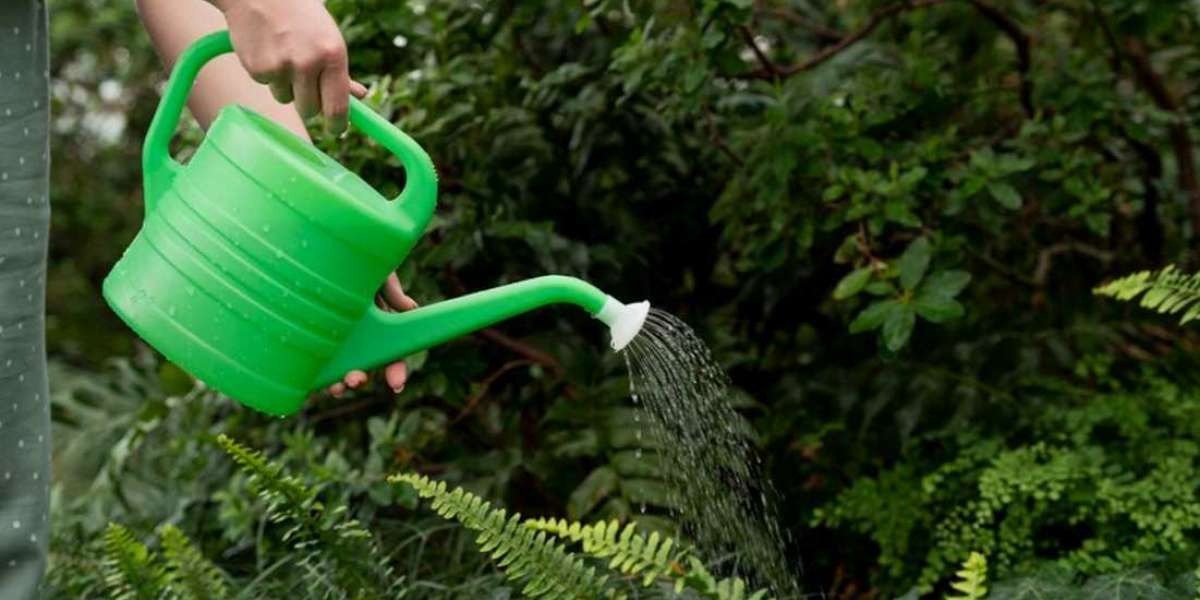When it comes to nurturing your plants, whether in your garden or on your windowsill, the type of fertilizer you use can make a significant difference in their health and growth. Among the various types of fertilizers, liquid fertilizers have emerged as one of the most efficient ways to provide essential nutrients to your plants. Unlike granular fertilizers, liquid fertilizers are absorbed faster by plants and offer a more controlled and immediate nutrient release. This makes them an excellent choice for gardeners looking to give their plants a nutrient boost quickly.
In this article, we will explore five top liquid fertilizers for plants that every gardener should consider using to ensure their plants thrive. From general-purpose nutrients to specialized blends for specific needs, these liquid fertilizers can promote stronger roots, healthier foliage, and bountiful blooms.
1. Fish Emulsion Liquid Fertilizer: A Natural Powerhouse
Fish emulsion is a popular liquid fertilizer for plants, particularly for gardeners who prefer organic and natural options. It is made from fish byproducts and is rich in nitrogen, phosphorus, and potassium—three essential nutrients that plants need to grow strong and healthy. Fish emulsion also contains trace minerals, amino acids, and essential fatty acids, which promote vigorous growth, improve soil health, and boost plant immunity.
Benefits of Fish Emulsion:
High Nitrogen Content:
Nitrogen is vital for promoting green leafy growth. Fish emulsion provides a slow but steady supply of nitrogen to the plant, which is particularly beneficial for leafy vegetables, herbs, and green foliage plants.
Boosts Root Development:
The amino acids present in fish emulsion help stimulate root growth, making it ideal for newly planted seedlings or transplanting.
Supports Overall Plant Health:
The minerals and fatty acids in fish emulsion help build plant resistance against diseases, pests, and environmental stressors.
Best For:
- Leafy vegetables like spinach, lettuce, and kale
- Flowering plants like sunflowers and marigolds
- Indoor plants that need a boost in overall health
How to Use: Fish emulsion can be diluted with water and applied directly to the soil or as a foliar spray for faster absorption. Follow the label instructions for proper dilution ratios to avoid over-fertilizing.
2. Compost Tea: A Liquid Gold for Soil Health
Compost tea is an organic liquid fertilizer for plants made by steeping compost in water. The process extracts beneficial microbes, nutrients, and organic matter, which are then made available to your plants. Compost tea acts as a natural soil conditioner, enriching the soil ecosystem and encouraging the growth of beneficial microorganisms. These microorganisms help break down organic matter in the soil, release nutrients, and protect plants from harmful pathogens.
Benefits of Compost Tea:
Rich in Beneficial Microorganisms:
Compost tea introduces beneficial bacteria, fungi, and other microorganisms into the soil. These help decompose organic matter and improve soil structure, leading to healthier plants.
Enhances Nutrient Availability:
The nutrients from compost tea are in a form that is easily absorbed by plant roots. It’s particularly effective in nutrient-deficient soils.
Improves Disease Resistance:
The beneficial microbes in compost tea can outcompete harmful pathogens, reducing the likelihood of plant diseases.
Best For:
- Plants grown in nutrient-poor or depleted soil
- Organic gardeners looking to improve soil health
- Plants susceptible to fungal diseases, like tomatoes and cucumbers
How to Use: Compost tea can be brewed at home using a compost bin, but there are also ready-made versions available. Simply dilute the tea with water and apply it to the soil around the base of the plants or spray it onto the leaves for foliar feeding. Make sure to use it fresh, as the beneficial microorganisms degrade over time.
3. Seaweed Liquid Fertilizer: A Superfood for Plants
Seaweed is packed with natural growth hormones, vitamins, and minerals that can significantly benefit your plants. Seaweed-based liquid fertilizers are an excellent choice for promoting strong root systems, improving drought resistance, and boosting overall plant vigor. They contain micronutrients such as iodine, iron, calcium, and magnesium, which are often missing from traditional fertilizers.
Benefits of Seaweed Liquid Fertilizer:
Rich in Micronutrients:
Seaweed fertilizers provide plants with a wide array of essential micronutrients that contribute to overall health and vitality. These nutrients are crucial for plants’ ability to photosynthesize, grow, and produce flowers and fruit.
Stimulates Root and Stem Growth:
Seaweed extract contains plant hormones like auxins, cytokinins, and gibberellins, which stimulate root and stem development, making it an ideal choice for transplanting or starting seeds.
Improves Stress Tolerance:
Plants treated with seaweed fertilizer are more resilient to environmental stresses such as heat, drought, and cold. This is particularly helpful during extreme weather conditions.
Best For:
- Tomatoes, peppers, and other fruit-bearing plants
- Transplants and seedlings needing a growth boost
- Drought-prone plants like succulents
How to Use: Seaweed liquid fertilizer can be diluted with water and applied directly to the soil or used as a foliar spray. Apply it every two to four weeks during the growing season for optimal results.
4. Molasses Fertilizer: Sweeten Your Soil for Stronger Plants
Molasses, a byproduct of sugar refining, is often overlooked as a plant nutrient but can be an incredibly effective liquid fertilizer for plants. While it is rich in carbohydrates, molasses is most beneficial for enriching the soil and boosting microbial activity. It contains potassium, calcium, and magnesium, along with beneficial sugars that feed soil microbes, which in turn help break down organic matter and make nutrients available to plants.
Benefits of Molasses Fertilizer:
Boosts Soil Microbes:
Molasses serves as a food source for beneficial microbes, helping to enhance soil health and nutrient cycling.
Increases Plant Sugar Production:
The sugars in molasses promote photosynthesis and increase plant sugar production, which boosts plant health and encourages stronger blooms and fruits.
Enhances Disease Resistance:
By promoting a healthy, thriving soil ecosystem, molasses can indirectly reduce plant susceptibility to fungal diseases and other soil-borne issues.
Best For:
- Fruit trees and berry bushes
- Plants in soil that may lack organic matter
- Organic gardeners looking to encourage beneficial microbial life in the soil
How to Use: Molasses can be diluted in water and applied directly to the soil. It can also be added to compost tea for an additional microbial boost. A typical mixture is one tablespoon of molasses per gallon of water.
5. Humic Acid Liquid Fertilizer: A Soil Conditioner for Long-Term Health
Humic acid is a natural organic substance found in humus, the dark, rich material formed from the decomposition of plant and animal matter. It plays a vital role in soil health by improving nutrient retention and boosting soil structure. While humic acid itself isn’t a direct nutrient source, it helps plants absorb nutrients more effectively from the soil, making it an excellent supplement for boosting plant growth.
Benefits of Humic Acid:
Improves Nutrient Absorption:
Humic acid helps plants absorb nutrients more efficiently by increasing the cation exchange capacity (CEC) of the soil. This means that plants can take up more nutrients from the soil and use them more effectively.
Enhances Soil Structure:
Humic acid helps break down compacted soils, improving drainage and root penetration. It also helps retain moisture in sandy soils and improves aeration in clay soils.
Promotes Healthy Root Growth:
By enhancing soil structure and nutrient availability, humic acid promotes deep, healthy root systems, which are crucial for overall plant health.
Best For:
- Plants growing in poor, compacted, or acidic soils
- Long-term garden health, particularly in large, established gardens
- Lawns and large outdoor plants needing better root systems
How to Use: Humic acid can be applied to the soil by diluting it with water, following the manufacturer's guidelines. It can be used during planting, as part of a soil amendment plan, or as a foliar spray to boost nutrient uptake.
Conclusion: The Power of Liquid Fertilizers
Liquid fertilizers are an incredibly effective way to supply plants with the essential nutrients they need for optimal growth. Whether you’re looking to boost your plants’ overall health, promote root development, or encourage more blooms and fruits, liquid fertilizers offer a quick and efficient solution. From fish emulsion to seaweed extract, each liquid fertilizer brings unique benefits to the table, so it’s important to choose one (or more) based on your plant’s specific needs.
Remember to always follow the recommended application instructions to avoid over-fertilization, as too much of a good thing can sometimes be harmful to plants. With the right liquid fertilizer for your plants, you’ll be on your way to creating a lush, thriving garden that is the envy of all your neighbors.







